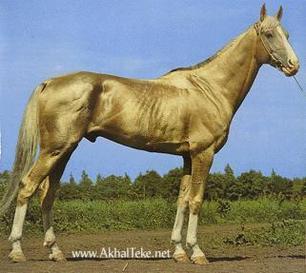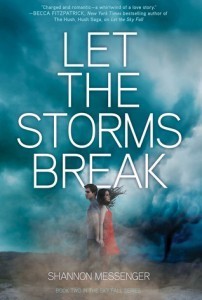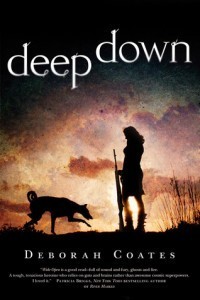Rachel Neumeier's Blog, page 396
August 29, 2013
Writing & Interruptions
An interesting post about dealing with interruptions in a writing career, over at Book View Cafe, by Deborah J Ross.
Then life handed me Interruptions. Non-negotiable Interruptions. The good ones involved having to drop whatever new project I was working on for reviewing copy edits, revising to editorial feedback, or proofreading a book in production. It simply isn’t professional to tell your editor, “Yes, I know this book has a tight deadline but I simply can’t set aside this on-spec novella so you’ll simply have to wait until the muse takes a vacation.”
For me, many interruptions are provided by the natural world: gotta get these cuttings made right now or it will be too late. Gotta drop everything and take care of these premature puppies right now because, hello, puppies have priorty.
But! Unlike Debora Ross, I am comfortable writing fifty or a hundred pages of some project and setting it aside for months or even years. It makes me feel like that project is underway, like I have something to come back to. Which is true, obviously. Re-reading those pages usually gets me in the right frame of mind to pick up that project and go on with it.
I have two — no, wait, three — projects in that stage right now. Yay!
There’s a different kind of interruption that I hate, though. That’s when I have this GREAT SCENE in my head that I really want to write, but no uninterrupted days in which to work on it. That will make me just stop dead, waiting, because I want to enjoy that scene and I won’t be able to enjoy it if I have to work on it a mere hour at a time. So in this case, stopping is a kind of indulgence.
Deborah Ross also refers to a much more serious kind of interruption, though: interruptions forced on us by a real crisis.
The thing is that when we return to projects suspended because of crisis, we do so as a different people. Interruptions due to crash-and-burn deadlines may strengthen critical skills, but they don’t generally cause us to reach deep into ourselves and emerge stronger but scarred. I’m not the writer or the person I was when I drafted those shorter pieces or that fractured novel. I’m something different.
Yes, this would be so true. I’m hoping not to have too many really serious crises, but you know, I don’t imagine anybody gets through life without a couple.
Anyway, nice article! Click through and read it, if you like.

August 28, 2013
Range of Ghosts by Elizabeth Bear
Okay, waiting to get THE SHATTERED PILLARS, which will probably arrive while I’m gone for this weekend’s show, which means I won’t get to read it till Monday. Which is unfortunate! Because having finished RANGE OF GHOSTS, I can tell you that the first book does not stand alone. I don’t know that the second book will, either, but hey, I’ll chance it.
The carrion-king: creepy, isn’t he? I actually sort of like scorpions, but I’m not keen on how he’s set up poor Edene as part of his Scary Plan, whatever that turns out to be.
Love Temur. Love his magic horse, who is handled far, far better than most magic horses in fantasy. It’s only toward the end that we become pretty sure that yes, she is magic. She is clearly an Akhal Teke, btw. That is plainly the real-world breed on which the steppe ponies are based. They really do often have a metallic sheen to their coats, thus:
See the long flat muscles, the lean build? The metallic sheen is in fact created by the structure of the hair; the opaque part of each hair is reduced, the translucent part makes up more of each hair; thus the sheen. This is a fascinating breed and it is so cool that Elizabeth Bear did her research and made the horses fit the landscape.
The dogs, too. The working dogs she described are matted, which in fact was an asset because the heavy felted or corded mats protected them from wolves and weather, but here’s what those big sheep-guarding dogs look like in the real world:
These are Tibetan mastiffs. Again, Bear’s description is perfectly clear; if you know this breed exists, you can recognize her dogs right off.
Plus the food and the clothes and the attitudes created by the nomadic lifestyle and the societal attitudes toward women — the steppes are a good place to be a woman; other places not so much — and the landscape, of course. All very nicely drawn.
And have I mentioned the moons? You should read this series just for the creative astrology!
Okay, more extensive comments after I read the second book. But one more Akhal Teke picture to end, because it doesn’t show the metallic sheen so well, but it’s a GREAT picture:

August 27, 2013
Moving along with BLACK DOG –
Got my first email about the cover today — not that there are any rough sketches or anything, but they are starting the initial thinking-about-it phase. Exciting! And nice to be consulted, though I certainly don’t intend to try to shove my non-professional opinion down the artist’s throat, because really, that’s just silly.
Though there mustn’t be a real wolf on the cover. That’s important, because black dogs aren’t wolves and really don’t look like wolves. It’s like putting a dragon on the cover of THE FLOATING ISLANDS, and I was all like: IT MUST HAVE FEATHERS, and the artist wound up just not putting a dragon on the cover, which was FINE, as long as he didn’t try to put on a bat-winged dragon.
I know, I KNOW, the purpose of the cover is to sell the book. That’s what it’s for! So there’s all this marketing stuff to consider. Do we want a girl on the cover? In a sexy, contorted pose? (Maybe to the first; and in my opinion, a decisive No to the second — to me, Natividad is pretty in a girl-next-door way.)
So you see I do have opinions, actually.
But then, to me, it seems like these days Every. Single. Paranormal/UF. Cover. has a girl in a sexy pose with a weapon in her hand and an animal in the background, and they all totally blur together for me. So there’s the question: do you want to signal to readers that this is a paranormal/UF? Or do you want to steer clear of the herd and chance missing readers who are actually looking for paranormal/UF? It’s even harder when you consider that BLACK DOG both is and is not a paranormal/UF title.
I mean, there is some romance, but it is not really front-and-center the way you expect in paranormal romance. It’s maybe more UF, except not urban. (Rural fantasy?) So it’s not clear what signals to try to send.
Plus these days a cover really has to look okay as a thumbnail on Amazon and wherever.
You know what I personally really like in a cover, though?
Landscape. Like, check this one out:
I just did a search for paranormal covers and this one jumped out at me — nearly all the rest had the girl taking up like 80 percent of the cover, usually in a sexy or bring-it kind of pose, all the elements that are so typical these days. This one is more interesting to me because it both sets the characters in the scene and evokes the title.
And I like a more artistic cover, too, like this one:
Which of course I mentioned to my Strange Chemistry editor. I can’t even tell you how much I’m looking forward to seeing what the artists and cover designers come up with!

August 26, 2013
Finished! Plus, link to a celebratory recipe. Plus, what should I read now that I have time?
For certain generous values of “finished.” But, yay! First rough draft is in fact done! 118,000 words, which is an excellent rough draft length — I will do my best to cut a minimum of 10,000 words. That’s only 8 percent; how hard can it be? Right?
Right?
I celebrated by making this super-indulgent recipe for breakfast on Sunday. It should come with a warning: MAKE FOR A CROWD. YOU CAN’T EAT JUST ONE. Not that I was trying to stop at just one, but honestly, hard to stop after a dozen, too. I made half the recipe and it’s amazing how many coconutty-chocolatety little biscuit things you can devour in one day. Mmm.
The ganache would be totally gilding the lily, but I admit I didn’t bother with that part.
So, anyway. Tonight I want to switch one smallish scene to Natividad’s pov, since for some inexplicable reason I didn’t do that in the first place. I don’t know what the back of my writerly brain was thinking that I didn’t do it that way in the first place. Honestly, brain, get a clue.
Then I have a list of about, I don’t know, a dozen things that I need to fiddle with. Some are specific and therefore easy; some are the kind of tweak-through-the-whole-manuscript thing that is enormously tedious and annoying. Then there is always the difficult decision about whether everybody has a clear character arc and the fiddling necessary to make sure the answer is Yes. For this one, there is also the equally difficult decision about whether the two plotlines tie together well enough. (If they don’t, I’m sure my agent, Caitlin will tell me ALL about it, she has an invaluable eye for that kind of thing.)
But! I don’t intend to tackle the real revision until September, maybe even mid-September, because often these things work better with a little time to rest. So in the meantime, I will definitely be choosing some great books to read. But what?
On my physical TBR shelves, I have RANGE OF GHOSTS by Elizabeth Bear — you know, I have never read anything by Bear? Also UNDER HEAVEN by Kay, and NAMAAH’S KISS by Carey. Among a lot of other things, naturally. I would really like to whittle down the number of books on the TBR shelves, which are overflowing just a trifle. Maybe I could go on an Asian-setting kick and read the NAMAAH trilogy and UNDER HEAVEN and SNAKE AGENT by Liz Williams? That would help with the overflow problem.
Then on my Kindle, among many other things, I have CROWN DUEL and COURT DUEL by Sherwood Smith — another writer I have never read anything by, which I would like to correct. So many of the titles I am most enthusiastic about are on my Kindle, it can be hard to make myself look at the physical TBR shelves.
And even beyond the Kindle! On my Amazon wishlist, which I use pretty much as a subsidiary memory? On there I have some fabulous titles. I am so behind. I may be the only person on Earth not to have read CODE NAME VERITY by Elizabeth Wein yet. Of course I will love it, but I’m not sure I’m in the mood for something that intense.
So many books! Can we have twice as many hours in the day, just for September?

August 23, 2013
How much do titles matter to you?
Lotta good links from Twitter today, including this link to a post by Susan Morris on titles.
For me, covers matter a lot — I have bought a book strictly for its cover before, I have bought specific editions of a title because I like the cover. I have never refused to buy a book because I didn’t like the cover, but sometimes it’s a near thing.
Titles? Titles, not so much, really. Except! I have to say, I do love a beautiful evocative title like THE SKY IS EVERYWHERE. For me that’s a title that’s hard to beat. Or A FISTFUL OF SKY, to take another ‘sky’ title that I really love.
For me, any title that is just the main character’s name is dreadfully boring, which doesn’t mean I don’t have working titles that are exactly that. And any title which is more poetic is likely to appeal to me more than a title that is just a noun, even an interesting noun. For example, I prefer CATCHING FIRE to THE HUNGER GAMES (only with regard to the titles, though). Or closer to home, for me, THE FLOATING ISLANDS is merely an acceptable title, whereas the cover is the real draw. I truly admire a great title because experience has made it clear to me that great titles are not at all easy to come up with.
How about you? How important is the title to you, and do you tend to pick up / avoid books because of their titles?

Oh, btw, book sale –
Starting Monday the 26th, Strange Chemistry is dropping the e-book prices of their first seven titles to celebrate the imprint’s birthday.
I’ll need to check my Kindle to see which of these I already have.
Not sure how long this sale will last, but hopefully long enough for you all to pick up a couple of titles if you like.

YA is better than you think! But do we need it as a category?
I’m already on record as declaring that the quality of YA is, if anything, higher these days than adult SFF. And I know some of you feel the same way and probably most of you read both YA and adult SFF without making much of a distinction, same as I do.
So to you this “YA is actually pretty good!” idea is not a revelation.
But some people are only now finding this out. Which is the point of this article, which I found because of a twitter link, thank you twitter!
From the article, by Marisa Reichardt, “One of my biggest pet peeves is when Goodreads reviewers say things like, “I liked this book even though it was YA” — as if reading a YA book was a guilty pleasure.”
Which is actually not a phrase I’ve ever seen, as far as I can remember. How surprising it is to me that anyone still feels that way — like YA is for kids and adults should be embarrassed about reading it. I sort of feel it’s the other way around: I sort of think the YA category should be ditched, because it’s so plain that a lot of it is aimed at, or at least perfectly suitable for, adult readers.
I’ve been reading long enough that plenty of the books I remember finding in the ordinary SFF section would now without question be shelved in YA. Plus, these days, it seems like if a book has a young female protagonist, it’s going to be marketed as YA even if it is really not aimed at the teen audience.
Plus, aiming kids at YA as though they are OF COURSE not going to be the least bit interested in, say, a middle-aged woman protagonist? That is just wrong. It’s wrong because it’s wrong — I loved the Mrs Pollifax series when I was a kid, didn’t you? — but it’s also wrong because it’s misguided.
Separating YA from adult fiction encourages kids to believe their experience of life is so different from the adult experience that they won’t be able to relate to an older protagonist, and hello? Wouldn’t it make more sense to offer a multitude of coherent views of people who are NOT “just like me”? Exactly the way we want to encourage kids to read about protagonists who are diverse in other ways? I should think it is actually PARTICULARLY valuable to encourage kids to read about people in later stages of life, so they have more ways to think about what it’s like to be an adult.
And, yeah, turning that back around, there is certainly no reason to pretend that adults shouldn’t be interested in tightly plotted well-written coming-of-age stories. Last I noticed, every single adult in the world was once a kid; it’s not like the experience is totally alien. Plus, honestly, don’t almost all adults feel like they’re just pretending to be all grown up?
YA is going to continue to be a separate category simply because it’s a marketing tactic that works. But there’s no reason the rest of us outside of marketing departments should take that separation seriously.

August 21, 2013
It’s a guilty pleasure –
But I do enjoy really snarky reviews of bad books.
Like this one, from Liz Bourke.
Don’t forget to click on the grumpy cat gif. It adds that certain something.

August 20, 2013
Lake Missoula, and related topics
So a couple of days ago, somehow the big ice-age floods came up in conversation, but I didn’t remember the details, just that a lot of glacial meltwater backed up behind a huge ice dam, which broke, loosing an unbelievable flood across the western US.
Well, guess what Kim Stanley Robinson refers to briefly in RED MARS? Which I have been reading — or skimming would be a more accurate term — because I like the technical descriptions even though I dislike most of the characters, which makes it perfect while I work on my own WIP.
Anyway! Because of this handy coincidence, I was able to look up this great geological moment in US history, so let me pass that on to you.
Try to visualize this: a lake covering a big chunk of Montana, backed up behind an ice wall 200 feet high. When that dam broke, two trillion cubic meters of water drained west to to Pacific ocean in a matter of days, ten times as much outflow as all the rivers in the world today put together! That massive river ripped right through the basalt bedrock to dig channels 600 feet deep.
Wow. Just wow.
There’s a site here offering details and pictures.
While we’re on the subject of huge floods — did you know that the Med used to be a dry basin? Yep. Geological subsidence in the Straits of Gibralter allowed the Atlantic to flood into the Mediterranean and turn it into a sea, an event which occurred about five million years ago. The whole filling up of the sea is thought to have taken only a few months. Think of that! Wow!
I don’t think it’s possible to really imagine something like that, do you? Although maybe it is, because it’s exactly this kind of description that makes Robinson worth reading. Even though I dislike Maya, and Frank, and John, and actually at least half the point-of-view characters in his Mars trilogy. I like Nadia, though, and Ann is okay, and in the second book we get pov chapters from Sax, I like those. And Nirgel is okay. But, yeah, basically I read Robinson for the geology.
I actually learned about the Med being a salt desert and then filling up from a very different SFF author, Randall Garrett, who in the eighties wrote a series of books called the Gandalara cycle. I read these back then and — sorry for the spoiler, which is unavoidable given the context — thus learned about the history of the Mediterranean, which provides an important plot driver through the whole series, though exactly what’s going on is not revealed till the end.
Though this is important, knowing it will not interfere at all (I think!) with your reading enjoyment of these books, which are quite good, and certainly are not at all focused on geology like KSR. Garrett builds his own prehistoric society down on the salt desert, with considerable attention to detail and good characterization. I really enjoyed this series and have re-read the books several times. In fact, I was just skimming parts of the first book the other day, thinking about the Med and floods, and though it’s hard for me to evaluate a story with which I’m now overfamiliar, I do think this series is well worth looking up. Even the giant telepathic cats are handled in a slightly less wish-fulfillment way than one usually sees with telepathic animals, more like real animals and less like your special magic BFF.
Anybody else remember this series? What did you think?

August 19, 2013
Recent listening: a different kind of romance
So on the way to and then back from Chicago, I listened to THE LAST CHINESE CHEF by Nicole Mones, which made an interesting contrast to the Florand romances I’ve been reading recently.
I enjoyed it, but CHEF is definitely more on the literary side of romance. There’s nothing neat or quick about it, and very little pat about the ending. In some ways it barely seems like a romance, but I think that’s just in contrast to, say, Florand.
In CHEF, the main protagonist, Maggie McElroy, is a widow — her husband died a year ago — who is suddenly faced with a surprise: a paternity claim made by a Chinese family against her late husband’s estate.
I think modern American culture devalues grief and really carries a message that if you’re not over bereavement in a month or two, there must be something wrong with you. Of course this is not necessarily the case at all, so I loved Maggie and the way her grief is almost a physical presence in her life, even after a year. Listen to these first paragraphs:
“Maggie McElroy felt her life spiral away from her in the year following her husband’s death: she felt strange wherever she was. She needed walls to hold her. She could not seem to find an apartment small enough. In the end, she moved to a boat.
First she sold their house. It was understandable. Her friends agreed it was the right thing to do. She scaled down to an apartment and quickly found it too big: she needed a cell. She found an even smaller place and reduced her possessions further to move into it. Each cycle of obliteration vented a bit of her grief, but underneath she was propelled by the additional belief, springing not from knowledge but from stubborn instinct, that some part of her soul could be called back if only she could clear the way.”
Nice, eh? And then this paternity claim, out of the blue. A devastating shock, because hadn’t she known her husband after all?
Of course Maggie has to go to China, and there we pick up the other part of the narrative, because she meets the half-American Sam, who traces his ancestry back to great Imperial chefs and has been studying that style of cooking and is now just about to enter a major cooking competition.
And things happen, but slowly, unrolling like a slow river, never pulling the reader into a flooding cascade of events. This is not a thriller, though there are certainly things to worry about, eh? Like, is that little girl really Maggie’s husband’s daughter? And does Maggie want her to be? And if she is, does Maggie want to be tied to the child’s family, to her mother?
And how about that cooking contest, it’s really important to Sam, does he have a chance of winning with the Imperial style of cooking in the face of modernism, not to mention blatant nepotism?
And over and above all that, are Maggie and Sam going to be able to make room for each other in their lives?
A lot of this doesn’t get tied up with a neat little bow for the reader, but enough does that the ending is satisfying. Pretty satisfying, anyway. Enough so that you don’t have to be worried about reading it.
Okay, and? My goodness, the cooking, wow. There are these great little excerpts from a (fictional) book called The Last Chinese Chef, written by Sam’s grandfather. And we get wonderful little asides about Chinese food and Imperial cooking. It all is guaranteed to leave you dying for a trip to China, or failing that, for a taste of real Chinese food.
As it happens, though I can’t imagine making most of the brilliant and beautiful Imperial dishes detailed in this novel, I do have a cookbook by Fushia Dunlop called The Revolutionary Chinese Cookbook, which does in fact refer to many of the same events in Chinese history that we hear about in Mones’ story, and provides very suitable recipes, including one that really is in the Imperial tradition, where you remove the yolks from raw eggs, combine the whites with chicken stock, pipe that mixture back into the shells, and steam the eggs very gently so that you get what looks like yolkless eggs in the shell. (I don’t think I have the patience or nerve to try this, but the recipe is in there.)
So, yeah, now I’m planning to make a lot of Chinese food in the near future. As soon as I start cooking again. Which will not be this week, because I am closing in on the end of my current WIP, which means I am not interested in taking time to do much of anything else, including shop or cook. So right now I’m making extremely fast, easy things that basically require neither, like sauteed cubes of eggplant with harissa (the garden is producing a lot of eggplant).
Should be done with the rough draft by this time next week. I think.









